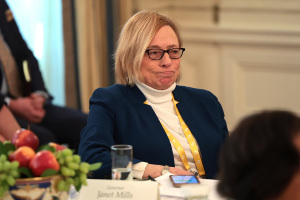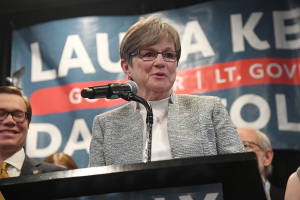Ecumenical Christians Look Forward to Shared Easter Dates
The Day of Pentecost was marked by Christians around the world Sunday except for those who will be celebrating the date this coming Sunday.
Because Christians of the Western tradition had marked Easter this year on April 12, they marked Pentecost on May 31 – 7 weeks after Easter. Christians in the Eastern Orthodox Church, meanwhile, had marked Easter on April 19 and therefore will mark Pentecost on June 7.
But the hope remains that that one day all Christians will celebrate Easter (and consequently Pentecost) on the same date – aside from the coincidental overlaps between the Julian calendar followed by Orthodox churches and the Gregorian calendar followed by Western churches.
"Although a change might not happen in the nearest future, there is some hope, that things might eventually change if the discussion goes on," commented the Rev. Dr. Dagmar Heller, an evangelical pastor from Germany who serves on the Faith and Order Commission of the World Council of Churches.
Late last month, the hope for united Easter celebrations was reaffirmed during an international ecumenical seminar organized by the Institute of Ecumenical Studies at the Ukrainian Catholic University in Lviv.
All participants at the seminar – which included Orthodox, Roman Catholic and Protestant theologians from a variety of European countries – endorsed the Aleppo proposal, a set of proposals that resulted from an ecumenical consultation held in March 1997 in Aleppo, Syria.
The proposal, which Heller said "seems to be the most reasonable solution so far" to establishing a common date for Easter, takes up what the Orthodox meetings in 1977 and 1982 at Chambésy had proposed, namely "(a) to maintain the Nicene norms, (b) to calculate the astronomical data, (c) using as the basis for reckoning the meridian of Jerusalem."
Among the norms established by the Council of Nicea in the year 325 was the date of Easter as the first Sunday after the full moon following the vernal equinox.
The Aleppo proposal has been translated into different languages and was sent to all the member churches of the WCC, the largest ecumenical churcy body in the world, as well as to the Roman Catholic Church.
According to Heller, the responses received were in general favorable.
"The Lambeth Conference took up the matter, as well as the Lutheran World Federation at its Council meeting in 1998," she reported. "The Pontifical Council for Promoting Christian Unity responded in favour of the proposal. Responses were also received from the Ecumenical Patriarchate and from the Moscow Patriarchate as well as from the Church of Greece and from the Patriarchate of the Syrian Orthodox Church of Antioch and from several churches from the protestant side.
"In Europe also the Conference of European Churches put the proposal on its agenda," Heller added.
Despite the broad appeal of the Aleppo proposal, many have not turned a blind eye to what they considered to be "the main problem" – "not the calculations, but the complex relations and missing of trust among different Christian denominations because of long divisions."
"The fundamental question, as we can well imagine, is not one of calculating a date or identifying legitimacy, of who has the best theoretical solution," noted Fr. Milan Žust, a Jesuit professor and an official of the Pontifical Council for Promoting Christian Unity.
"[T]he fundamental problem lies in the fact that we have lost trust in one another," he added.
"The most important thing is not to arrive to common date of Easter, or even a date for the day of full communion, even though that is the wish of all of us. What matters most of all is to work in this direction, to do what each could do within their capabilities and competence to foster mutual trust among us," Žust concluded.
Still, the Jesuit scholar expressed hope that the simultaneous celebration of Easter will bring Christians everywhere to growing communion with Christ and with one another.
Participants of last month's seminar said they hope that the years 2010 and 2011 – when the coincidence of the calendars will produce a common Easter date – will serve as a period during which all Christians would join their efforts "to make such coincidence not to be an exception but rather a rule" and prepare for a 2012 Easter date based on exact astronomical reckoning.
Easter will be marked by all Christians next year on April 4, and the year after on April 24. In 2012, the dates for Easter will be April 8 and April 15 unless churches worldwide come to a consensus before then.
If a consensus is reached, Easter would be celebrated in 2012 on April 8.





























